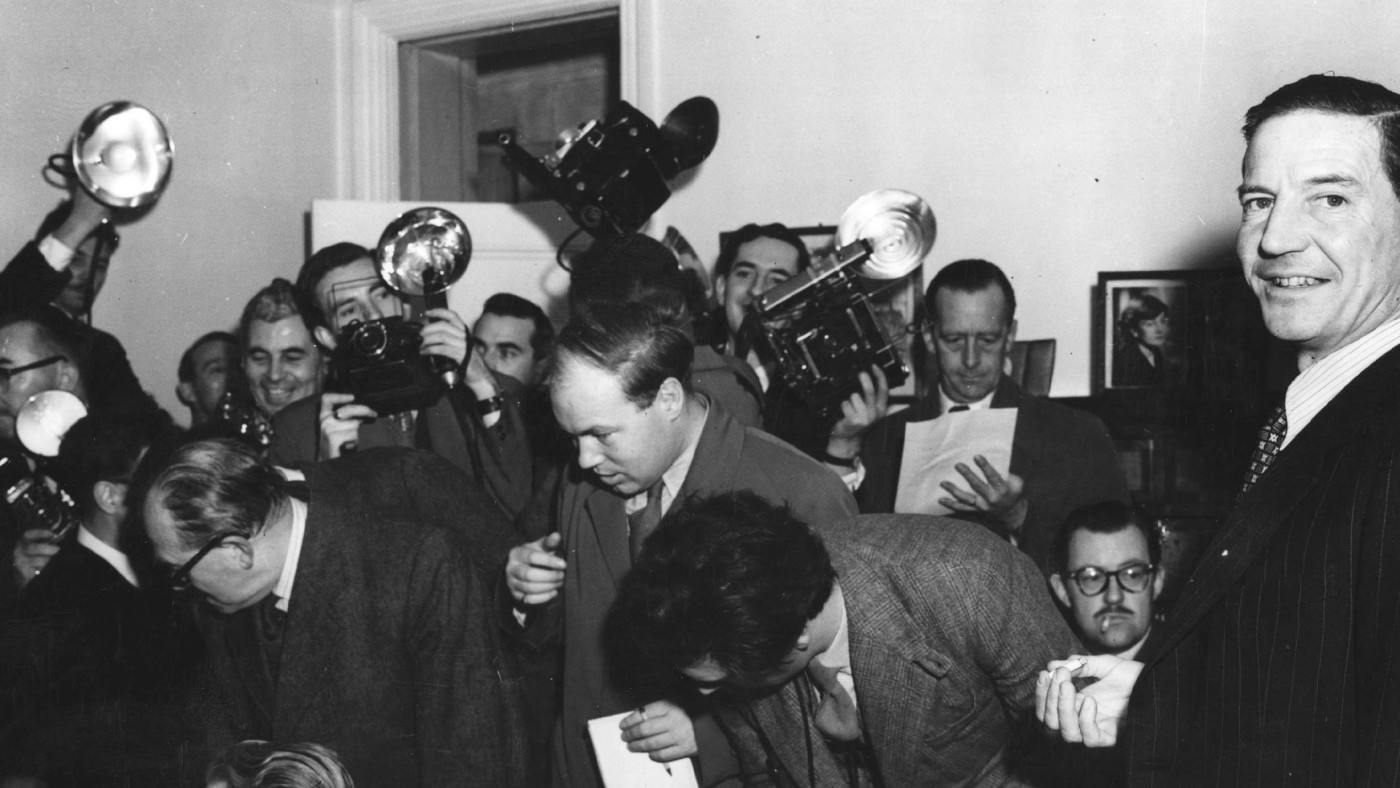“‘He betrayed his country’ — yes, perhaps he did, but who among us has not committed treason to something or someone more important than a country?… He was serving a cause and not himself, and so my old liking for him comes back”. Graham Greene made this remark in the forward to autobiography of his old friend, Harold ‘Kim’ Philby. It is this remark that has indelibly linked Graham Greene to Philby’s posthumous image. And highly seductive reasoning it is too. All of us end up betraying something in our lives-a lover, family, or a friend. What is country compared to these?
A new recording, unearthed by the BBC from the Stasi archives and broadcast as ‘The Philby Tape’, casts new light onto one of the most talked about figures in the history of espionage.
The background to the recording is fascinating. Even after Philby had defected and set up life in Moscow, he was regarded with suspicion. In spite of his new found fame and depiction on Soviet stamps, he was kept under house arrest for fear he would defect back to the West. Depressed and lonely, Philby did not enjoy his new life in the East, deprived of the comforts of English life.
The only other extant recording of Philby comes in the form a television interview in which he denies any connection to the double agents, Burgess and Maclean. His lips curl and smirk as he flatly replies “No further comment to make” and “the last time I spoke to a communist…was sometime in 1934”.
Questioned on Burgess’ defection, he replies “I consider his action deplorable” but adds that on the matter of friendship, it’s “complicated”. Is it so easy to separate the act and the man in Philby’s case? New evidence blurs the distinction still further.
Philby was asked to address new recruits to the East German intelligence service. He seems at ease and forthcoming. For all those who sympathise with Philby, his confession is a reminder of the potency of the dream he served, and the cost for those who wished to oppose it.
The recording is, not surprisingly, light on discussion on ideology. Presumably it was obvious that everyone shared a similar world view. The only real reference to ideology is a passing comment on the West’s ‘imperialism’. Philby’s blindness is staggering. At the same time as the British Empire was being rolled back all across the earth, violence and oppression intensified against the subject peoples of the Soviet empire in Hungary and Czechoslovakia.
The other moment that shames Greene’s judgement of Philby is the Albnanian episode, recounted in detail for the first time in the recording. He remembers how he was a member of a team in charge of an operation to parachute in dissidents to combat the nascent dictatorship. Every detail was leaked; mass executions followed.
The dull banality of Philby’s so-called achievements becomes clear. Put simply, he betrayed countless people who trusted him, and gladly sent many more to an early grave. The bodies of the Albanian dissidents, on which the great communist project was to be built, became in the end the substance of Philby’s boasting. If they had died for this project, then perhaps their lives would have been endowed with meaning. In reality, Philby made sure they died only for his vanity.
In the end, this new recording demonstrates without qualification that Philby helped no one but himself. He may not have believed in the grand vision, the long march. But if he did, he was always to be at its centre, setting friend against friend and East against West. Philby stayed true to some image he held of himself.
Graham Greene’s appreciation of the inner complexities of human character make his novels great. It is a stain on Greene’s reputation that he could not judge one of his friends with the same clear-sighted honesty.


